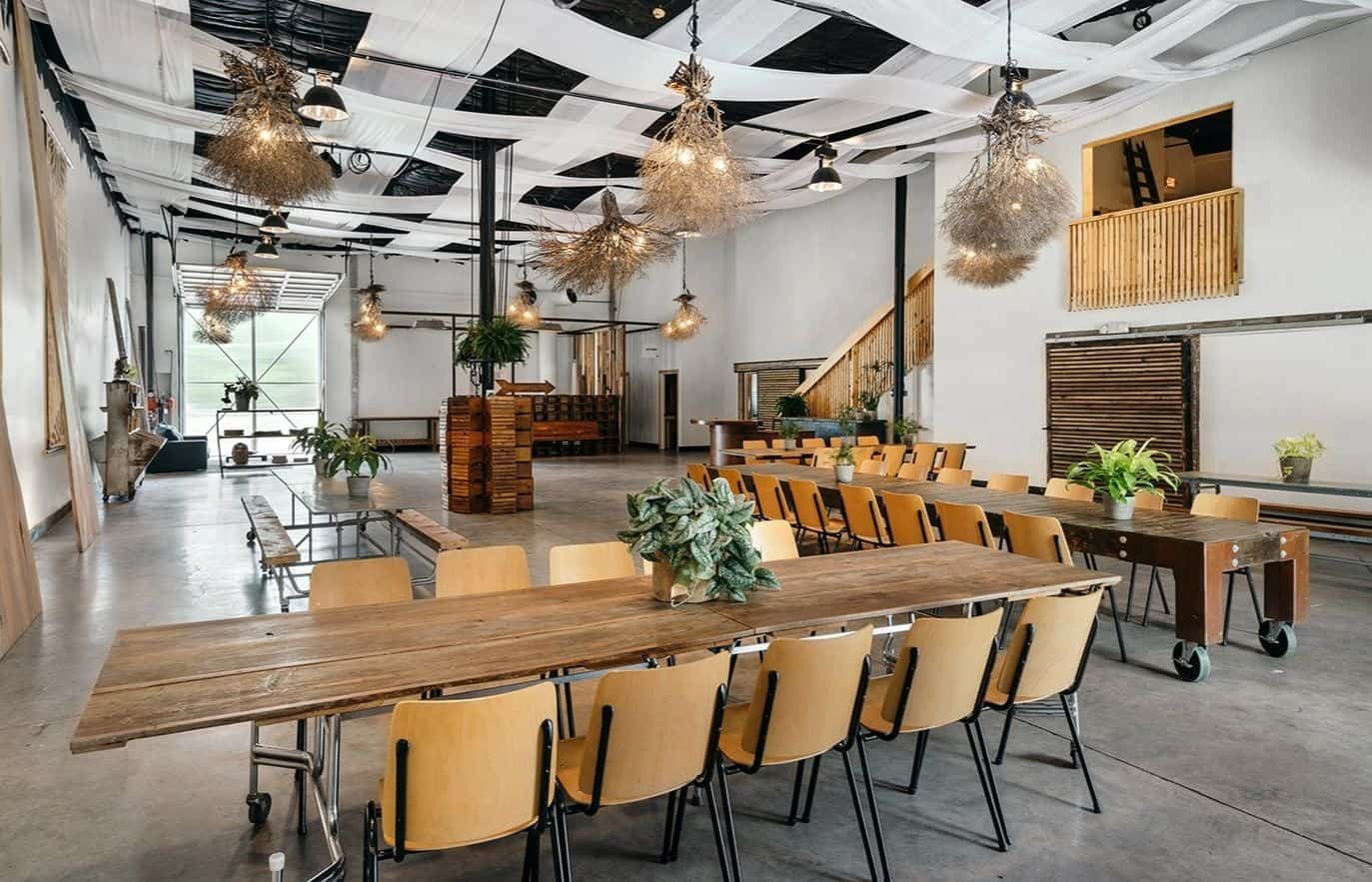
Source: Peerspace
You’ve decided to plan a workshop, but how do you begin? The purpose of any workshop is to inform a small group of attendees on a topic and teach them a specialized skill, so you’ll need to consider your messaging carefully. You may only have one or two hours with your participants — as a result, organizing and preparing your course upfront is essential to running a smooth workshop.
Planning any workshop is no easy task, and a successful workshop requires creativity and focus. You want your workshop to not only be a productive experience, but also a memorable one. Follow these steps on how to plan a workshop to make sure your event is educational and beneficial for your attendees.
Set your goals
The first consideration you should tackle when planning a workshop is to understand your goals. This means fleshing out your core concept — why are you having the workshop? You also need to list your learning objectives. What should workshop participants leave knowing that they didn’t before?
Before you can begin designing curriculum and content, you need to define what exactly it is you’ll be teaching your attendees. It will be helpful to put together a document to act as a kind of syllabus. In this document, state your workshop goals and each of the lessons you’d like to work through, and include a list of any materials you’ll be using. This way, you can stay on task throughout the workshop.
Design your schedule
As you begin crafting your learning outcomes, you’ll need to start working on a detailed schedule. The final schedule will be largely determined by how much time you have available and how much you’d like to cover. To a lesser extent, workshop size will play a part in scheduling as well, so keep that in mind as you organize.
Start with a 10-minute introduction, and then lay out the agenda for the workshop. If your workshop is going to be longer than a couple of hours, be sure to schedule at least one significant break. Generally, it’s a good idea to have short breaks between activities as well. One of the most important parts of scheduling is building in a buffer time — you never know when questions might make part of the day run a little long. Build flexibility into the plan.
Select a venue
By now, you should have some idea of the size of your workshop. If not, we suggest not going beyond 20 people or so. This is because when you have a larger group, you wind up spreading yourself too thin, and it’s easy for the workshop to turn into something more like a lecture. This brings us to venue selection, an important but often-neglected part of how to plan a workshop.
The right venue sets the whole tone for your workshop and can make the difference between a bland event and an exciting one. You may think this is the most difficult part of the planning process and that dealing with venue logistics will be a headache, but we’ve designed a platform to make it a breeze.
Peerspace is the largest online marketplace for event spaces, and we’re positive you’ll be able to find the perfect venue. Just search for meeting spaces in your city and choose from one of our great options. If you have any A/V, furniture, or catering needs, our Concierge service makes organizing all of those logistics a piece of cake, letting you focus on other important factors of your workshop.
Take a minute and peruse the spaces in your city. Imagine holding your workplace in an inspiring loft or creative space as opposed to a hotel conference room. You’ll find that the right environment fosters an energized, engaged environment. First impressions matter.
Establish a workflow
Constructing the actual content workflow of your workshop is straightforward with some preparation. Make a list of your main discussion points, and break each one down into smaller talking points that are essential to communicate. If you’ll be using visual aids — whether physical or PowerPoint slides — list these for each of your main points. Then, list your discussion ideas and the activities in which you want to lead.
Exercises and activities generally follows this formula:
1. Demonstrate
Show the participants how to do something.
2. Practice
Have the participants complete this task on their own.
3. Discuss
Have a discussion about the task. What worked for people? What was difficult? Talk about the work that each person did and give constructive feedback, while also inviting their opinions.
4. Repeat
Follow this process again from step one for the next task.
The overall length of this cycle can be whatever you need it to be depending on the total amount of time you have and the number of activities you’d like to accomplish.
Consider your teaching style
Though you’re running the workshop, you should refrain from being the event’s center of attention. While your attendees will no doubt be learning from you, they can also learn from each other. As you instruct, you’re also acting as a kind of social facilitator for people who may not know everyone in the room. But as the workshop progresses, they’ll build relationships with one another — these relationships are often carried on long after the workshop is complete.
By stepping aside when necessary, you’re allowing your attendees to network with their peers. You should also seek to strike a balance between treating your topics seriously and not seeming too uptight. Don’t be afraid to laugh or be casual. This makes both you and the material more approachable.
Have a system for post-workshop feedback
The last thing you need to do when considering how to plan a workshop is establish a plan to get feedback at the end of the day. You might not consider student feedback initially, but this is useful data for you to have. Student feedback generally takes the form of a questionnaire that you give to all your participants. Design this in such a way as to get specific feedback on the things you’re most interested in, but also have plenty of opportunities for open-ended comments.
Receiving criticism can be intimidating, but it’s an important part of learning how to be better at our tasks. The information you get back from your students will be invaluable when you’re planning your next event. Teaching memorable workshops is good for your students — they learn a new skill, make new connections, and certainly don’t feel as though they’ve wasted the day. Plus, building your reputation as a good workshop instructor enhances your business reputation and shows other that you’re a leader in your field.
Find a unique event venue on Peerspace
Get together somewhere better
Book thousands of unique spaces directly from local hosts.
Explore SpacesShare your space and start earning
Join thousands of hosts renting their space for meetings, events, and photo shoots.
List Your Space






